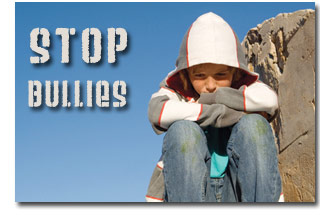 |
 |
|
A Resource for Athens Area Families
|
|
An award-winning illustrated children’s storybook by Janet Heller, How the Moon Regained Her Shape, is a tool that allows parents and educators to discuss bullying with children. Influenced by Native American legends, Heller’s tale about how the moon changes shape due to bullying personifies the lunar cycle. The main character of the story, the moon, finds herself as the target of the sun’s malicious insults. While once the proud moon danced and laughed, she is now embarrassed and begins shrinking. A comet directs her to a Native American woman on earth who can heal her pain. The woman hugs the moon and shows her how important she is to the people and animals on earth. After regaining her confidence and full shape, the moon always remembers how valuable she is to her friends on earth when any bully insults her. Heller’s book is just one of countless resources available. Another great tool for parents and kids is the website, www.stopbullyingnow.hrsa.gov. The site provides a wealth of information for parents, and fun games for kids to play that teach them valuable lessons on what to do in a bad situation, how to stop bullies and how to prevent it from happening again. Sadly, bullying is a common problem. Almost everyone has been forced to deal with a vicious situation or person, and it can appear in many forms. Hitting and/or punching (physical bullying), teasing or name-calling (verbal bullying), intimidation using gestures or social exclusion (nonverbal bullying or emotional bullying) and sending insulting messages by phone or computer e-mail (cyberbullying) are all possibilities. As mentioned earlier, many children, particularly boys and older children, don’t tell their parents or adults at school about being bullied. It is important that adults are vigilant as possible to the signs of bullying (see box at left). If you have suspicions that your child is dealing with a bully or bullies, it’s essential that you make sure to open a line of communication with them. Even if they don’t want to talk, they need to know that you’re available if they do feel like sharing with you. It may also be helpful to meet with your child’s teachers or the staff at their school. Teachers will probably be in the best position to understand the relationships between your child and other peers at school. Share your concerns about your child and ask the teacher specific questions-be sure that he or she isn’t just focusing on what type of bullying, such as physical or verbal. If you are not comfortable talking with your child’s teacher, or if you are not satisfied with the conversation, make an appointment to meet with your child’s guidance counselor or principal to discuss your concerns. If you obtain information from your child or from staff at your child’s school that leads you to believe that he or she is being bullied, take quick action. Bullying can have serious effects on children. The more educated and prepared you and your child are, the better the end results will be. Warning Signs of Being Bullied
|
. |
|
|
|
© 1998 - Athens Parent, Inc. All
rights reserved.
Reproduction in whole or in part without permission is prohibited. |
|
Send comments or suggestions to: webmaster@athensparent.com
|


